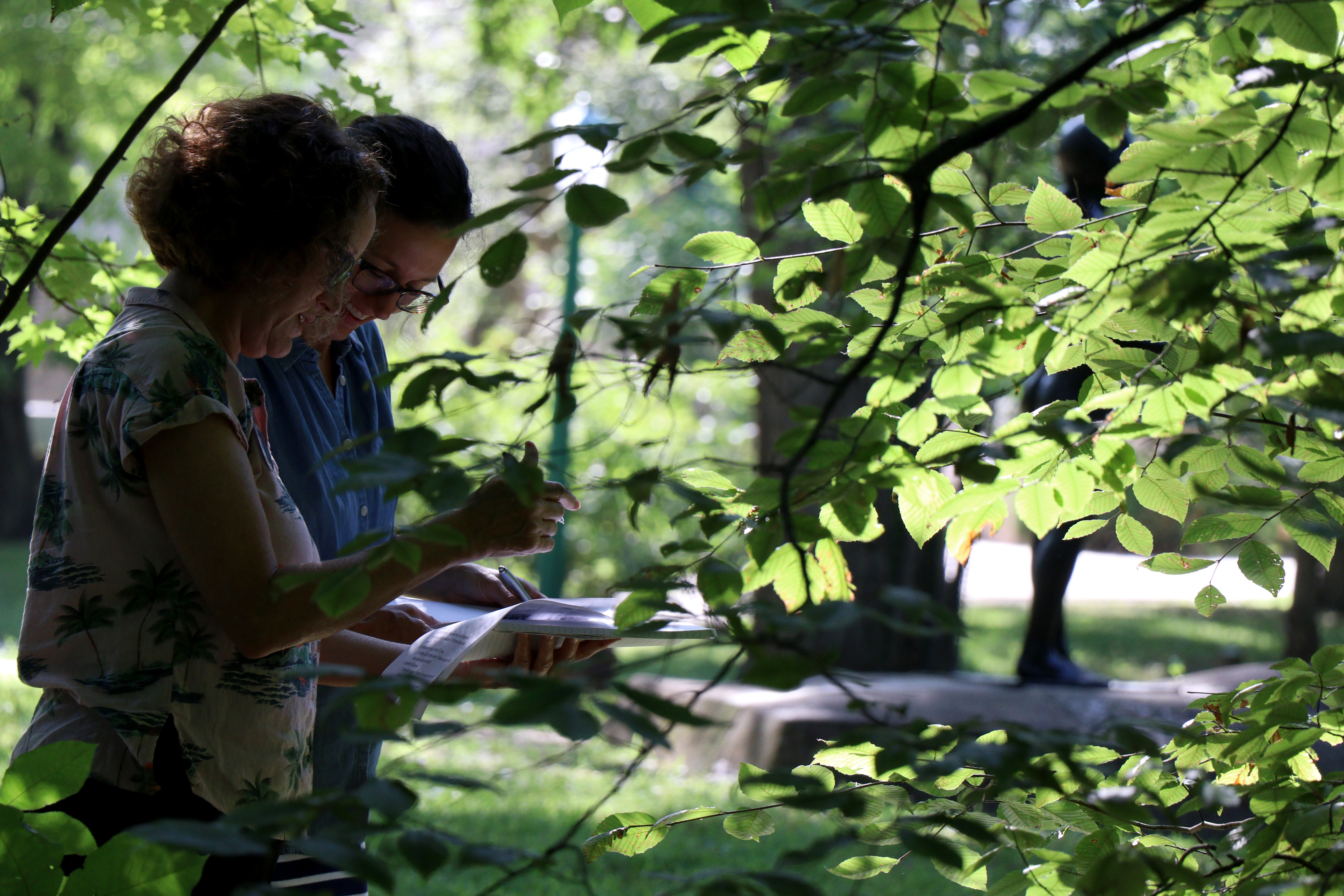The week of July 8, eighteen middle school and high school teachers and thirteen elementary school teachers from across Indiana became the newest cohorts in the ERI-sponsored Educating for Environmental Change (EfEC) teacher professional development program. This marked the second year of the middle/high school institute and the inaugural year of the elementary institute.
The workshops were part of a joint initiative organized by the IU School of Education Center for P-16 Research and Collaboration, the Environmental Resilience Institute, WonderLab Museum, and climate scientists from several IU departments, including Earth and Atmospheric Sciences, Biology, Physics, and the O’Neill School of Public and Environmental Affairs. Bloomington High School South science teacher Kirstin Milks and St. Charles Borromeo Catholic School science teacher Kirstin Maxwell served as lead educator consultants for the program. The intensive, hands-on workshops provided teachers with engaging curricula and effective strategies for classroom instruction about climate change.
A survey by the Yale Program on Climate Change Communication found that 72 percent of Hoosiers, and 79 percent of Americans agree that schools should teach children about the causes, consequences, and potential solutions to global warming. Although there is overwhelming support for incorporating climate change in K-12 curricula, teachers often have little training and support for doing so and face additional barriers, including a lack of age-appropriate resources and the perpetuation of a partisan disinformation campaign. The EfEC program aims to assist teachers in overcoming these challenges to teach about environmental change across disciplines.
Here are five takeaways from an energizing and impactful week of discussions with Indiana educators:



